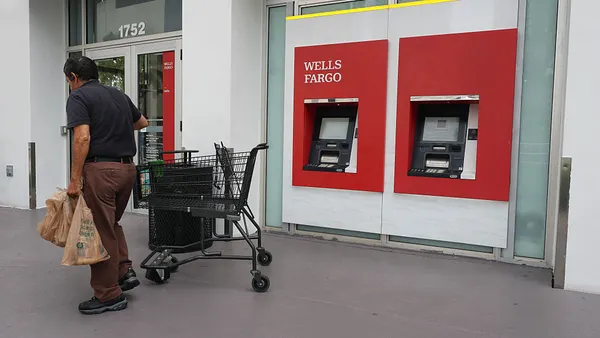Cincinnati-based Fifth Third Bank, one of the largest consumer banks in the Midwest, opened deposit and credit-card accounts in customers’ names without their consent as part of an aggressive cross-sell program, the Consumer Financial Protection Bureau (CFPB) says in charges it filed in federal district court Monday.
"Despite knowing since at least 2008 that employees were opening unauthorized consumer-financial products and services, Fifth Third took insufficient steps to properly implement and monitor its program, detect and stop misconduct, and identify and remediate harmed consumers," the CFPB said in its complaint.
In addition to opening unauthorized deposit and credit-card accounts, CFPB said, the bank transferred funds from customers' other accounts to the new accounts, set up online-banking services, and activated lines of credit – all without customers knowing.
"In short," the CFPB said, "Fifth Third focused on its own financial interests to the detriment of consumers."
Major financial services company
Fifth Third is one of the largest financial institutions in the United States, with more than $150 billion in assets and over 1,150 branches in 10 states, mostly in the Midwest. It was state-chartered until obtaining a national charter last year.
The CFPB said the unauthorized activity was driven by an aggressive sales incentive program under which bank employees were evaluated and compensated in part on the number of accounts they opened. In some cases, if employees didn't meet sales goals, they were fired.
"Reasonable sales goals and performance incentives are not inherently harmful," the CFPB said. "But when such programs are not carefully and properly implemented and monitored, they may create incentives for employees to engage in misconduct in order to meet goals or earn additional compensation."
Because bank executives turned a blind eye, the abuses were a "predictable" outcome of the sales practices, the CFPB said.
Abuse limited in scope
A spokesperson said the bank's abusive practice was limited, and doesn't rise to the level alleged by the CFPB.
"After an investigation spanning more than three years and involving nearly half a billion pieces of data produced by the Bank, the CFPB has not informed us of any unauthorized accounts beyond the fewer than 1,100 accounts that the Bank itself identified out of 10 million – or approximately 0.01 percent of accounts opened between 2010 and 2016," Fifth Third Chief Legal Officer Susan Zaunbrecher said. "These accounts involved less than $30,000 in improper customer charges that were ultimately waived or reimbursed to customers years ago. While even a single unauthorized account is one too many, we took appropriate and decisive action to address each situation."
Zaunbrecher said the bank will push for an early trial to clear its name. "The Bank is confident that it has treated its customers fairly," she said. "When a federal court examines the evidence, we believe it will agree with Fifth Third that this is a limited and historical event."
The sales program resembles a program terminated in 2016 by Wells Fargo, the country's third largest bank, that the SEC and Office of the Comptroller of the Currency found violated federal banking and consumer protection laws.
Under that scandal, Wells Fargo employees were found to have created roughly 3.5 million fake accounts in exchange for receiving sales-based incentives. Three weeks ago, the SEC fined the bank $3 billion and, this week, the House Financial Services Committee will hold two days of oversight hearings.














